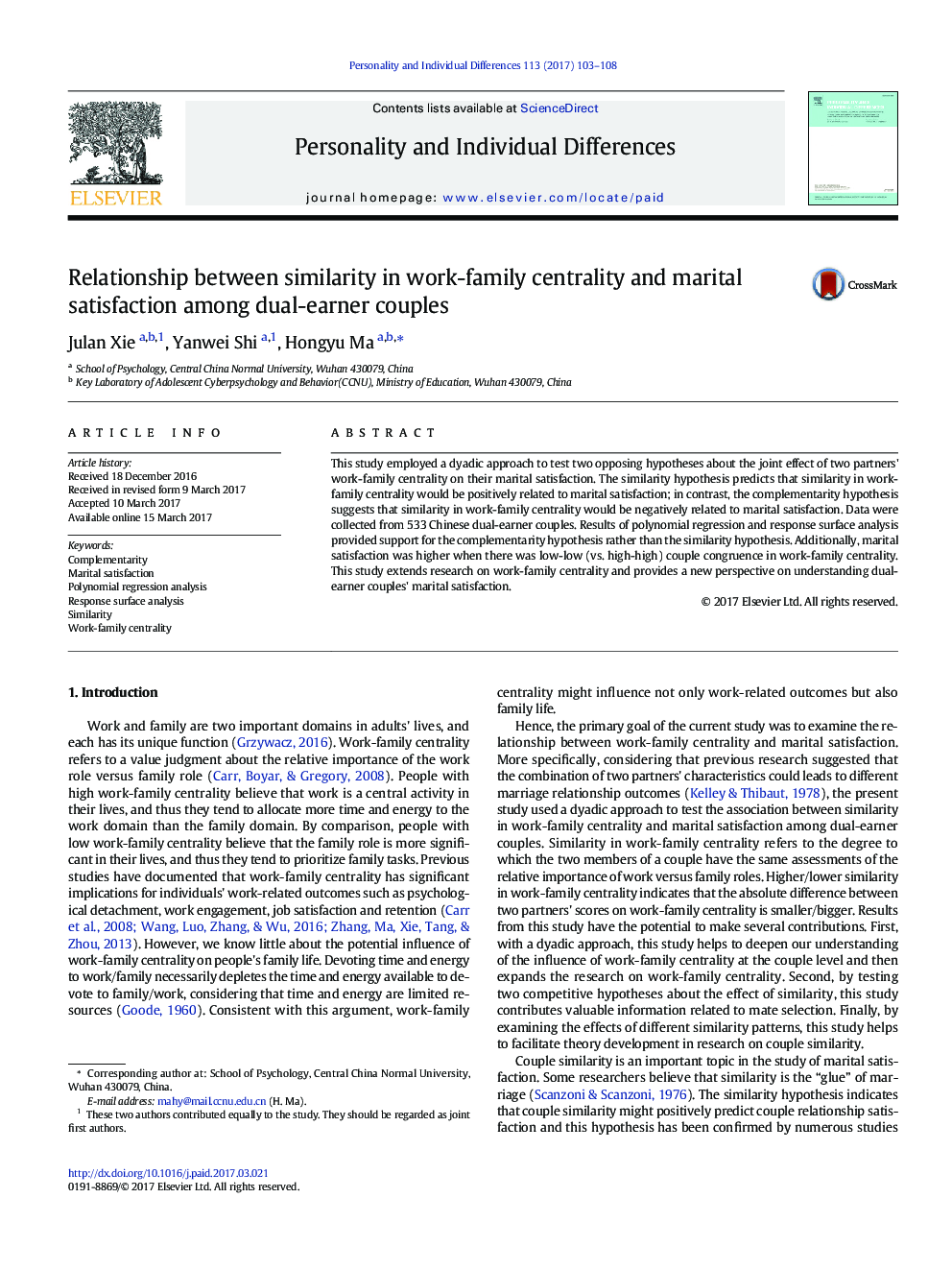| Article ID | Journal | Published Year | Pages | File Type |
|---|---|---|---|---|
| 5035766 | Personality and Individual Differences | 2017 | 6 Pages |
â¢Similarity in work-family centrality is negatively related to marital satisfaction.â¢Marital satisfaction is higher when there is low-low couple similarity.â¢This study extends research on work-family centrality.â¢This study provides a new perspective on understanding marital satisfaction.
This study employed a dyadic approach to test two opposing hypotheses about the joint effect of two partners' work-family centrality on their marital satisfaction. The similarity hypothesis predicts that similarity in work-family centrality would be positively related to marital satisfaction; in contrast, the complementarity hypothesis suggests that similarity in work-family centrality would be negatively related to marital satisfaction. Data were collected from 533 Chinese dual-earner couples. Results of polynomial regression and response surface analysis provided support for the complementarity hypothesis rather than the similarity hypothesis. Additionally, marital satisfaction was higher when there was low-low (vs. high-high) couple congruence in work-family centrality. This study extends research on work-family centrality and provides a new perspective on understanding dual-earner couples' marital satisfaction.
